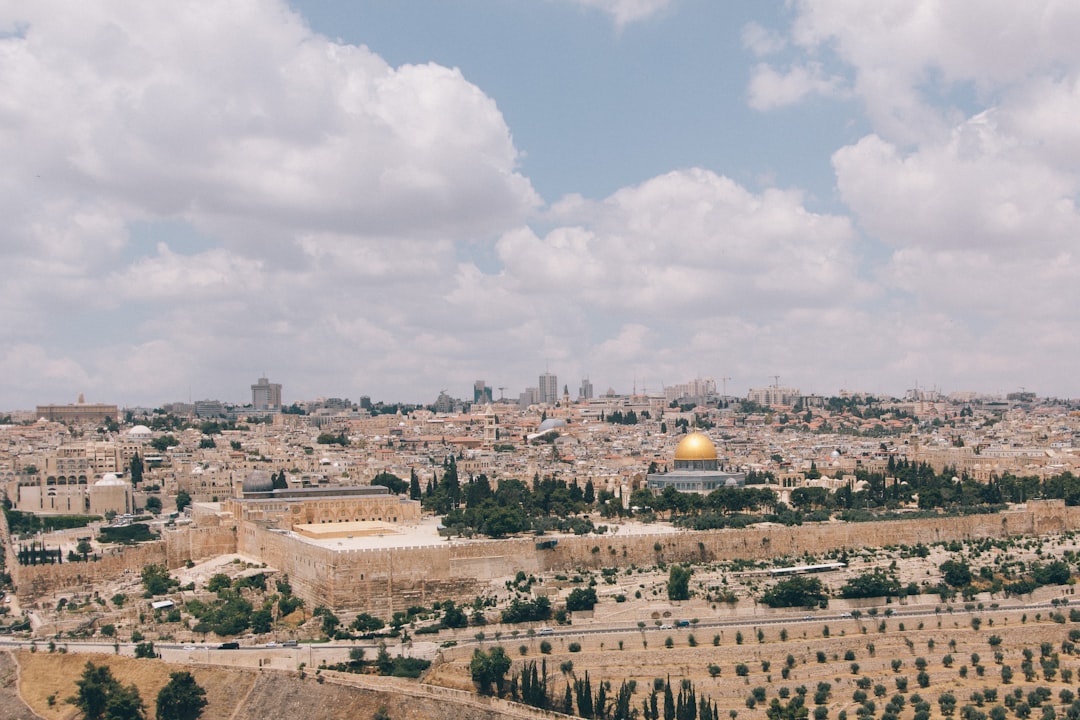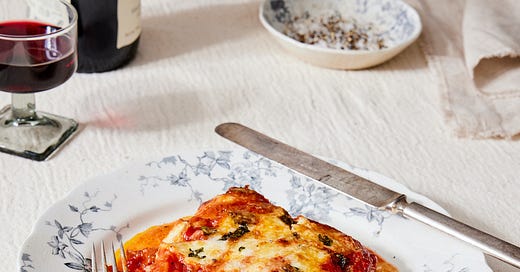

Discover more from The Jewish Table
I lost two paid subscribers to The Jewish Table this past week. On the face of it, there’s nothing particularly surprising about that—readers come and go fairly regularly based on fluctuations in their budget, time, and interest.
But what did surprise me was the feedback that came along with the unsubscribes. The first person wrote this:
Prior status: Paid Subscriber
Reason: Requested by user
User feedback: I am beyond sad and disappointed that Leah is an antizionist Jew.
The second person wrote this:
Prior status: Paid Subscriber
Reason: Requested by user
User feedback: I'm an antizionist Jew, and although I appreciated Leah expressing empathy for Gazans a couple of times, I wish she would do more to push back against institutional Judaism's silence or disinformation on the genocide in Gaza. I understand why that's difficult or impossible for someone whose livelihood depends on institutional Judaism, but reading the newsletter doesn't feel good any more.
Huh.
Somehow, two readers encountered the same words/thoughts/opinions of mine here (and on Instagram), and came to wildly opposite conclusions about who I am and what I believe.
I don’t take either of these unsubscribes or comments personally—truly I don’t. To say that we are living in painful times is an understatement, and I get how deeply and viscerally people feel about the horrific situation in Israel and Gaza, because I feel it too.
But after reflecting a bit, it saddens me how quickly we have begun to close doors on one another. How quickly we shut people down. How quickly we let our outrage silence potentially productive conversations. How instantly we get disappointed in one another. How effortlessly we give up on and dismiss people who are, arguably, largely our allies.
I am actually grateful for these unsubscribes—particularly the second one, because that person is correct to suggest that I have recently shied away from sharing much about Israel or Gaza. My quiet is partly rooted in my fear of the vitriol I have received. And it is also rooted in my not quite knowing what to say that will be helpful or further the conversation at this point, rather than simply being performative.
I am an American Jewish food writer who centers my work around curiosity for and love of Jewish food around the world. I do not have particularly deep knowledge about Middle East politics. I certainly do not have answers. And it frustrates me that because I am something of a public Jewish person, I am expected to have answers.
But it is also true, if I am being honest with myself, that I have hidden my head in the sand a bit in recent weeks. Not in my personal life, where conversations about Israel and Gaza have continued, but in my public and professional life. And I do feel a responsibility to use my “platform” (as nominal as it may be) to help begin conversations, not cut them off.
So let me start with my bottom lines:
I believe that Jews and Palestinians *both* have long-standing and deeply legitimate historical, religious, cultural, and familial connections to the same land.
I know that neither group is going anywhere. (Nor do I believe either group should feel compelled to go anywhere.)
While finding a path for Jews and Palestinians to live together peacefully feels utterly impossible right now, I believe it is ultimately the only way forward.
I remain sickened over the destruction and violence that Hamas initiated on October 7, and deeply saddened to see the ripples of trauma it has left in Israeli life and on Jews in the diaspora.
I am daily gutted by the images of horror coming out of Gaza—citizens, children, starving and scared and running out of places to run.
I am outraged at the ways Hamas has hijacked the lives of Palestinian civilians—their futures and their livelihoods—in pursuit of their own power. I am outraged at their utter disregard for human life.
I believe it is possible to love Israel while also speaking honestly about the places it has failed—both its neighbors and its own people—over the decades of its modern existence.
I despair over the increasingly racist/nationalist strains in Netanyahu’s government. I am outraged to see yet another wannabe dictator make decisions that help himself, not the hostages nor everyday Israelis—while leveraging immense suffering on Palestinian civilians.
As someone not directly impacted by the violence in Israel and Gaza, I share these thoughts from a place of privilege. I understand that people who are directly impacted may react from a place of grief and rage that I cannot personally access—and therefore I will not judge those reactions.
But while we stand up for the communities we care for, what would it mean to simultaneously and actively look for places where we can feel *softer* towards the “other side.” Not to the hateful, power-hungry aspects of the other side, perhaps, but to the everyday humans there? What might it mean to love our communities, while acknowledging their failures? What might it mean to recognize that none of us have all the answers nor the absolute moral high ground? What might it mean to stop vilifying and shutting down people who are actually potential allies? What might it mean to recognize we are being sold a false binary of ever-escalating hate that benefits no one except those clutching to power? What might it mean to soften our clenched rage?
I don’t have the answers to these questions. But I think the conversations that come out of them, if we can have them in good faith, offer a path forward.
I admit it: receiving angry emails and messages from readers, and having people unsubscribe from my newsletter—while making accusations about my character—stinks. And I know that some folks reading this will decide to unsubscribe too. That’s okay.
But for those of you who want to continue the conversation and to muddle through these impossible times together, now is also a fitting time to subscribe. I will not talk about Israel and Gaza in this newsletter every week. It is not the place to do so. But I do commit to continuing to foster a community of kindness, compassion, and curiosity. And I welcome you to join me.
Resources
I regularly to turn Rabbi Sharon Brous’ post-October 7 teachings and sermons because they offer honesty, depth, and glimpses of hope. She is clear-eyed and firmly rooted in Jewish teachings. She has a deep connection with Israel, but is not afraid to call it out for its failings, or to center the humanity of Palestinian civilians along with the humanity of Jews in Israel and around the world. Here are some of her recent must listens:
I also found this recent sermon by Rabbi Amichai Lau Lavie poignant and relevant. In it he says, “I think we have to protest the problematic legacy that we inherited. The traumatic Torah that we are still responding to—those patriarchal narratives of either mine or yours, good guy or bad guy.”
Anera - Donate to this food assistance organization that works to bring aid and comfort to civilians in Gaza, especially during Ramadan.
Leket - Donate to Leket, an Israeli food assistance organization that has stepped up its efforts to support families in Northern and Southern Israel who have had to evacuate.
What are you thinking and feeling right now? What resources have helped you?
Purim Recipes
Developing a recipe to go with this week’s newsletter felt wrong, but with Purim coming up I do not want to leave you hanging. Here are some of my favorite Purim-friendly recipes from this newsletter and beyond.
Triple Chocolate Hamantaschen (recipe)
Chocolate and Fig Hamantaschen (recipe)
Date and Pistachio Hamantaschen (recipe)
Chocolate Poppy Seed Hamantaschen (recipe)
Persian-Inspired Chicken and Rice with Dried Fruit (recipe)
Roasted Delicata Squash with Onion and Poppy Seeds (recipe)
Onion Jam and Goat Cheese Rugelach (recipe)
I’ll be back next week with a new recipe and more stories from the world of Jewish food. Until then, I am looking forward to continuing this conversation in the comments.
xo Leah














Leah, thank you for your honesty and continuing to engage with all the difficult questions rather than quitting. I agree that so many of us are too quick to close the doors. I am a Zionist (i.e. I believe that Jews should be able to seek self-determination in our ancestral homeland) AND I support the two-state solution and believe that Palestinians need a state of their own. That can only be achieved by direct negotiations. I want us all to get to a place where that's possible. Appreciate you so much.
I think - and feel - that this type of commentary is heartfelt, personal and helpful in moving the dialogue about this horrible situation along. Hopefully if the dialogue is able to recognize that all sides bear some responsibility and need to accept some level of accountability, progress toward resolving the situation can be achieved. So thank you Leah, for your bravery and your ability to articulate what others are thinking and feeling.